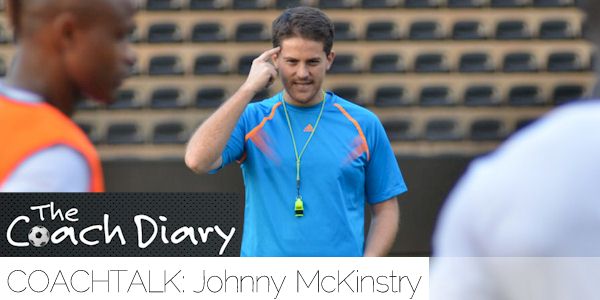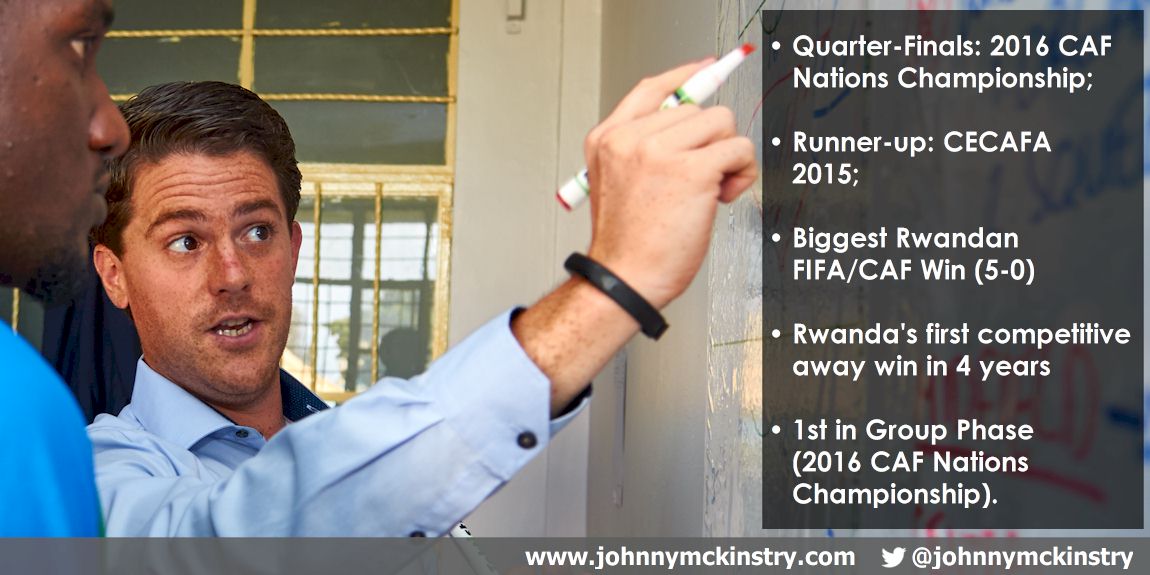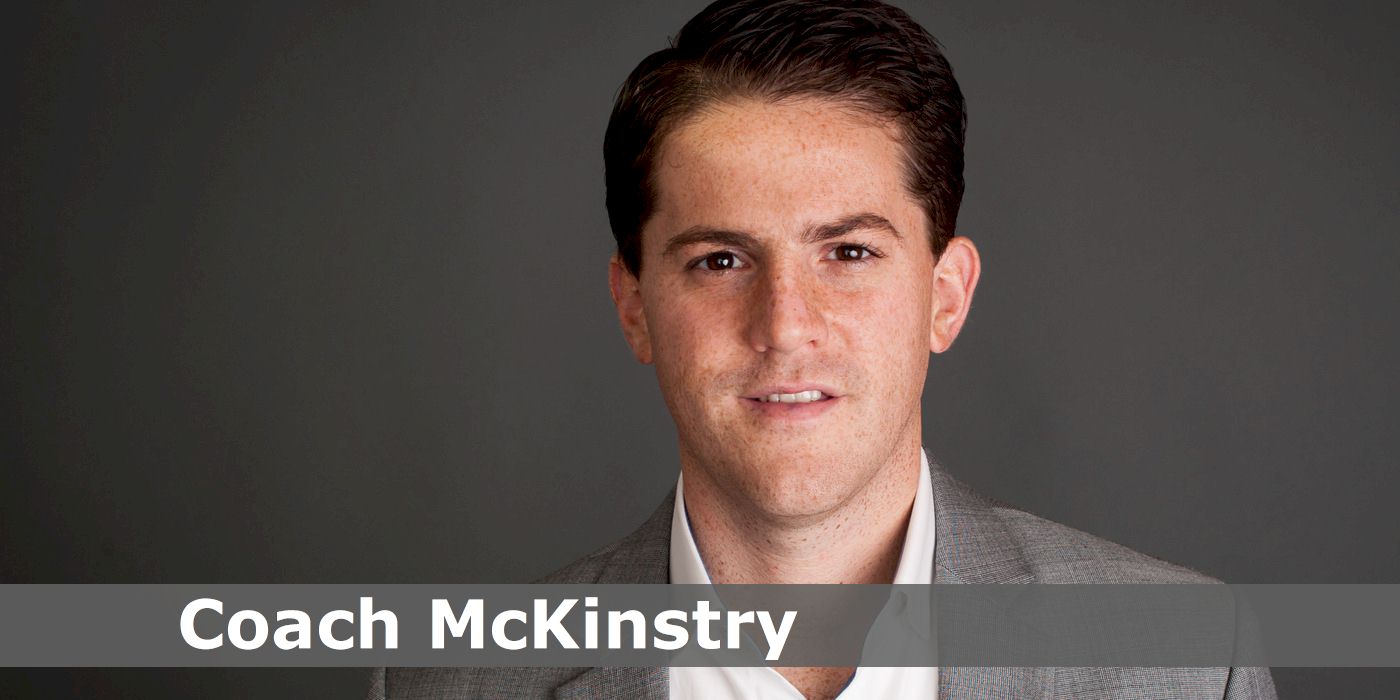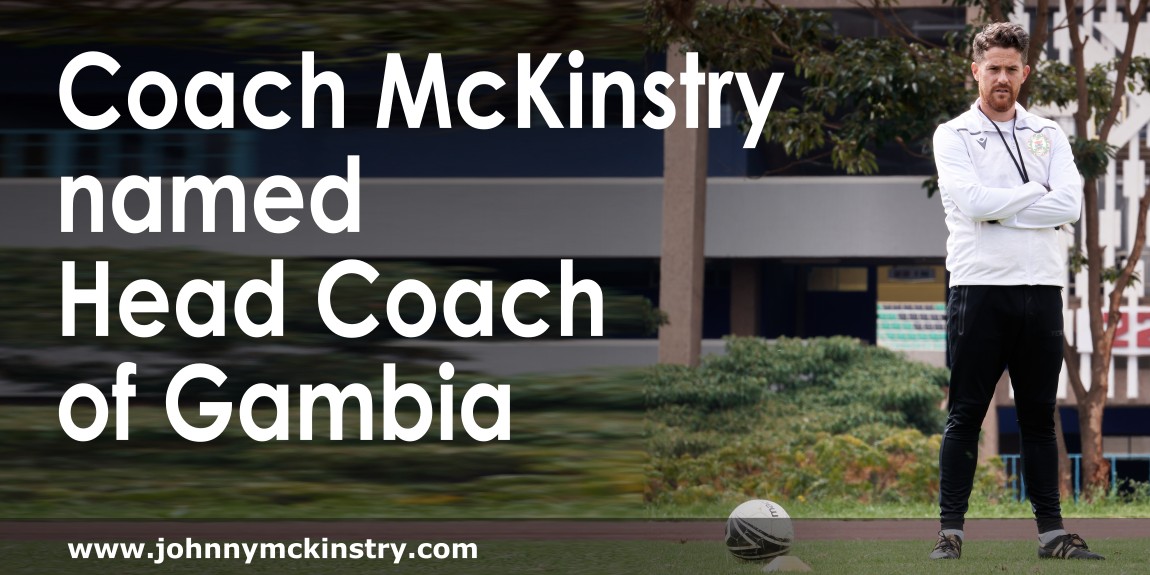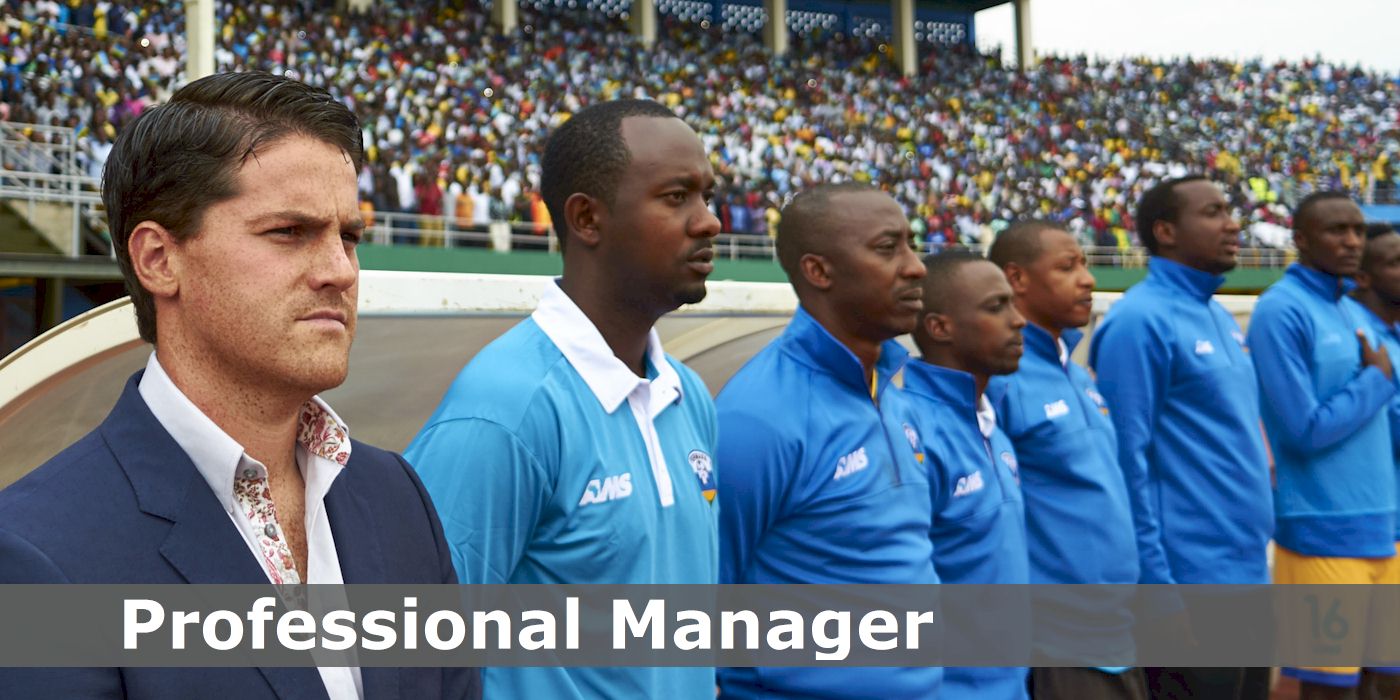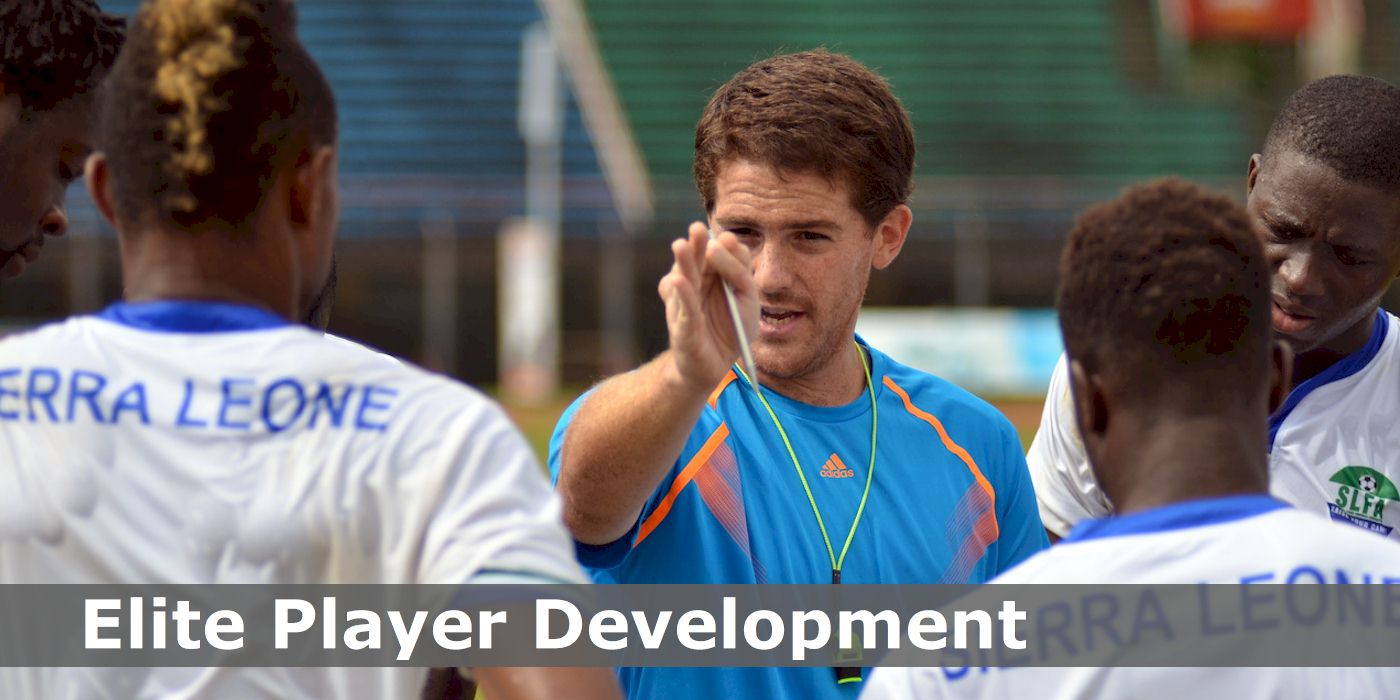My ambition has always been to coach at the highest level – the Premier League, the Bundesliga, La Liga, Serie A. I want to achieve something in those leagues. Not just to work in them,....
Last updated: 20 Oct 2014 Source: http://www.thecoachdiary.com/coachtalk-johnny-mckinstry/
Johnny is qualified at the highest level in Europe and America, holding an Academy Managers’ Licence (English FA); Premier Diploma (NSCAA); and UEFA ‘A’ Coaching Licence (IFA) as well as a range of other academic and professional qualifications.
He was Head Coach of the Sierra Leone National Men’s Football team from April 2013 – September 2014, at that time the youngest active Head Coach in international football (at only 27 years of age). He has achieved an awful lot and already has had extensive experience of coaching in Europe, North America and Africa.
TCD: Did you play football when you were younger?
JM: Yes, growing up I played football along with a variety of other sports (Rugby, Cricket, Squash), but football was always my real passion. Unfortunately I was not to go on to be one of the great Irish players of our generation – whilst I could play the game it was never a genuine prospect for me in terms of progressing into the professional ranks.
TCD: When did you know that you wanted a career in coaching?
JM: Football has always been a real passion for me and I have always felt I understood the game. Growing up I could see patterns within the game and even as a kid playing I had opinions on how I thought my team mates and I should play, and on occasion would let the coach know those opinions. When I accepted that the likelihood of becoming a professional player was not realistic, I was intent on having a role within the game and from a very early age, maybe around 16, I developed a firm belief that I could help make other players better.
TCD: What is your football philosophy?
- “Recruit & Develop of World Class People”……good people will do all within their power to not let you or their team-mates down. Therefore is we want to create a world class team, then we should invest time in recruiting and developing world class people
- “Your Most Important Player is the one with the Ball at their Feet”……if we accept that every player can win the game for our team…to score the winning goal or to make a game changing tackle, then it will affect how we coach our athletes. Think back to Tony Adams’ championship sealing goal for Arsenal against Everton. Have we equipped our central defenders with the skill and composure to do that? If that answer is no, then I think we need to ask ourselves why?
- “Send Them to Work with a Full ToolBox”……you would not ask a mechanic to fix your car if they did not possess the correct tools in which to do so. If we did, we would expect that something would go wrong eventually. Yet we often rush pass the opportunity to equip our players with the correct skills (tools) in order to perform their roles on the field. If we do this then how can we criticise when things go wrong. We need to spend time in ensuring that all of our players are able to perform the wide range of skills required to succeed within the game
- “They have to answer the question by themselves”……too often I see what I term ‘playstation coaches’ on the sidelines (at both junior and professional level) who constantly instruct from the bench, telling the players the decisions they should be making. I firmly believe that we should structure our training programs to encourage decision making as often as possible. Players must be able to play the situation they are presented with, and they often must do so within a split-second. We have given them the tools to use, now we must give them the capacity to select when and how to use them. This is no different that a student having worked with their teacher all year, and then sitting their examinations. Once they are to be tested, they have to do it for themselves.
The above represent some of the key components of my beliefs about the game and how to develop winning teams and world class athletes.
TCD: In your view what are the key traits of a modern coach?
JM: I think that the modern coach must be extremely knowledgable in so many different aspects of the game. That is not to say that they must micro-manage all areas. At the top level we have analysts, nutritionists, sport scientists, various forms of coaching staff. They all have their jobs and should be allowed to do them; but the coach must have an appreciation of each area. By doing so it better places them to make the correct decisions for their athletes. I also believe the modern coach should be very approachable for their players. That is not to say they are ‘one of the gang’. Not at all. But players should feel comfortable communicating with the coach, and discussing ideas, because after all it is they who are playing the game. It is important that a coach realises that players need to be part of the process.
TCD: Have you any mentors?
JM: Over the years I have been fortunate to take guidance from a number of experienced coaches within the game. That is not to say they have been the recognised names that people will see in the media; but having been part of coach education in Northern Ireland, England and the USA I have crossed paths with a great numbers of coaches who have a wide variety of experiences within the game. The great thing about meeting colleagues in such environments is that everyone is very open about sharing their experiences, and that in turn helps you to refine your own view of the game whilst at the same time putting across your own opinions.
TCD: You have travelled the world coaching, working with different cultures. How do these cultures (players) differ in terms of teaching the game?
JM: First of all it is important to acknowledge that there is good quality everywhere. I have been fortunate to work with elite level young players in the UK, USA and Africa; and being honest, on a technical level there is not too much difference between the very best in my experience. You do of course get some environmental differences. In Africa the young players tend to be very driven. The game means so much to them as success will not only vastly alter their own lives, but also the lives of their families and communities. So you can imagine the work rate that is often apparent at Academy level in Africa. On the other side of this coin, I would say that tactical understanding tends to be more developed in European and American countries. This is largely down to players exposure to the game on TV and live. You don’t have to go far these days to have the nuances of the game explained via football review shows with the likes of Gary Neville. This means players come to training with a base level of understanding for you to build on. In Africa and the worlds developing nations this education is more firmly routed on the training pitch and a key responsibility of the coach.
TCD: 4 years in what some might say is a remote part of the world must be a huge challenge, how did you end up in Africa?
JM: An interesting opportunity was presented to me to put it plainly. I was working with the New York Red Bulls back in 2009 and I got a phone call from someone I knew who wanted to put me together with the people setting up a football academy in Sierra Leone. It just peaked my interest. I have always sought out challenges in life, and I viewed the opportunity here in Sierra Leone as just that. I also saw it as an opportunity to have a significant impact on football in a country that I knew would be football crazy. It was definitely a good decision.
TCD: Is African football evolving and if so in what way?
JM: Yes, I believe it is. One of the biggest drawbacks in Africa has often been the tactical development of the game. Technique and fitness have never really been an issue; but through the lack of exposure to the global game through TV etc, the tactical level was somewhat lacking. However through an increased access to watching the game from all over the planet, young players in Africa are able to see exactly what their peers in the rest of the world see. The great teams and players and the way the game is played. Exposure to things like this naturally have a knock on effect of their understanding of the game.
TCD: Do kids still play on the streets or is gaming etc a factor also?
JM: Yes, absolutely. Football is the most accessible game in the world. A ball (or something similar) and goal posts (or something similar) and you’ve got yourself a game. Kids do have access to computer games through local gaming centres, but this costs a small amount of money so is only an occasional thing for most. It is very common to see people of all ages playing football in the street and on bits of waste land.
TCD: Not many people coach an international team at 27, how did you end up coaching Sierra Leone?
JM: At the time the post of National Team Coach became available I had been living and working in Sierra Leone for over three years. I had watched the Leone Stars regularly during that period, and I had a real belief that if I could get in the room with the decision makers at that time, that I would be a strong candidate for the job. I had my UEFA ‘A’ licence, I had worked all over the world, and I knew the game.
We arranged a meeting and in the two days leading up to it I watched the last couple of Sierra Leone games, as well as video of Tunisia (our next opponents) several times over and put together a presentation and dossier on how I would develop the team and how we would go about winning the upcoming game. No detail was left out….it was very thorough. Between my presentation and interview, the association decided that I was the right man for the job and two days later was invited back in to agree terms,
TCD: You left that role in September, what are you doing now?
JM: As I have said, my time working here in Sierra Leone extends back further than the National Team…almost 5 years now. Since 2010 I have managed a football academy located about an hour outside the capital city of Freetown where we work with the countries best young talent between the ages of 11 and 18, offering them around 12 hours training per week as well as full time education working towards their international GCSE. During my time with the National team I combined both the roles, so now that my time with the Sierra Leone team has come to an end I am concentrating entirely on the next generation of players once again.
TCD: You’ve achieved a lot for such a young person, what has been your best achievement to date?
JM: Taking Sierra Leone into the top 50 of the FIFA World rankings was a great achievement. That set a new record high for us as a country, and on a personal note placed us above both Northern Ireland and the Republic of Ireland which made me smile somewhat. I think however the moment that meant the most to me was seeing one of my young academy players here in Sierra Leone make his debut for the u20 National Team. Having only just turned 17 we had worked together for 4 years, and he was the youngest player on the pitch that afternoon. I felt very proud that day. I still do.
TCD: Whats the plan for the future, how long will you stay in Africa
JM: It’s hard to say. A football life often entails not knowing what is around the corner. For me, I am happy to be working with the excellent young players we have here at the Academy, but you are always keeping an eye out for potential new challenges and opportunities. 6 years ago living in New York I could not have foreseen how the next half-decade would have developed; but it has been excellent. I hope the years to come will bring equal amounts of opportunity and enjoyment. Wherever I go next I am sure it will be a challenge, as I seem to enjoy those….it always seems more fun when you can upset the odds. For now, I am eager to get moving on completing the UEFA Pro Licence, and I am currently in the middle of a MSc degree in Performance Coaching. So plenty of learning going on in preparation for anything that should come along.
TCD: Whats the dream?
JM: My ambition has always been to coach at the highest level – the Premier League, the Bundesliga, La Liga, Serie A. I want to achieve something in those leagues. Not just to work in them, but to achieve success. That is what this game is about ultimately – winning. I believe I can develop a winning team at the highest level. It maybe won’t come tomorrow, but I know if I can marching forward that it will come. I just have to make sure I am ready for it.
TCD would like to thank Johnny for taking the time to speak with us. You can find out more about Johnny on hiswebsite he’s also on twitter @johnnymckinstry
I always like to hear your opinions and views. If you feel you have something to say, please comment below or email me and if you don’t have anything to add, please pass this on to a friend. As always, thanks for reading. I’m also on twitter @Coachdiary
